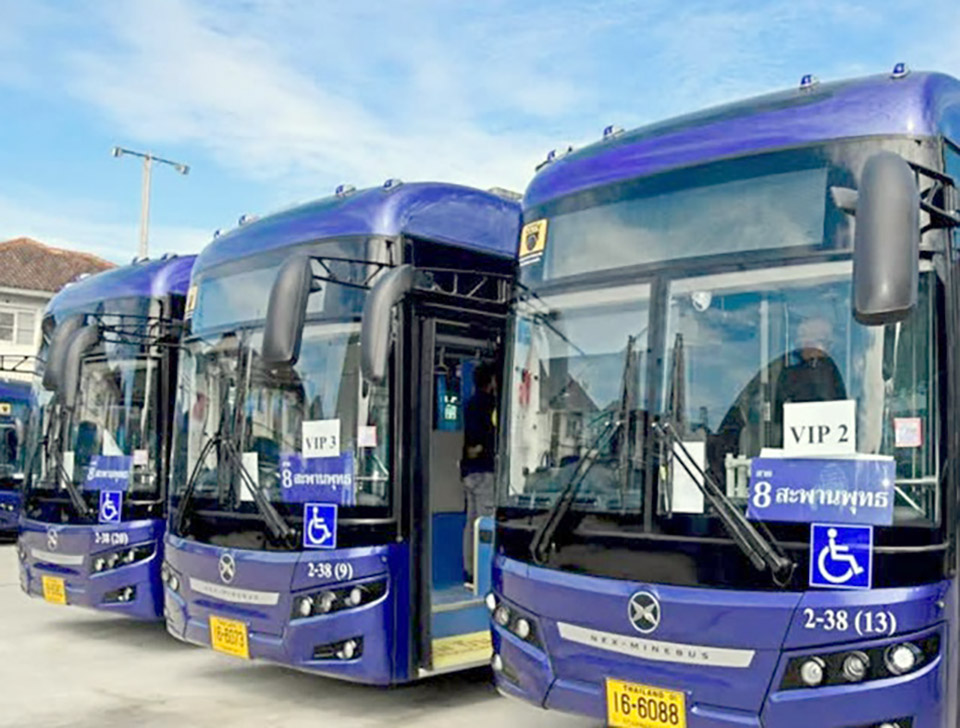
The initiative will cover bus routes currently operated by private companies under an agreement with the Bangkok mass transit authority. The routes eligible for this transition will need to receive authorization for electric bus operations from the Department of land transport.
Government spokesman, Anucha Burapachaisri, said this initiative is expected to help slash emissions by 100 metric tons of carbon dioxide per vehicle annually for a total of 500,000 tons between 2021 and 2030. This initiative will also help reduce air pollution from fossil fuels particularly airborne particulate matter 2.5 or PM 2.5 while providing commuters with more modern vehicles. The cabinet has, meanwhile, authorized the office of natural resources and environmental policy and planning or ONEP to sign an agreement with energy absolute. The deal involves a transfer of carbon credits acquired throughout the campaign to switzerland-based foundation for climate protection and carbon offset so-called The Click Foundation.
Thailand is driving for this goal to become a major manufacturing base for the world’s electric vehicle industry. This initiative is expected to help advance Thailand’s climate actions in line with the nation’s policy and strategy on energy, as well as help with this transformation into a low-carbon society. It will also promote the adoption of electric vehicles in Thailand in conjunction with the government’s 30 at 30 policy. (NNT)





